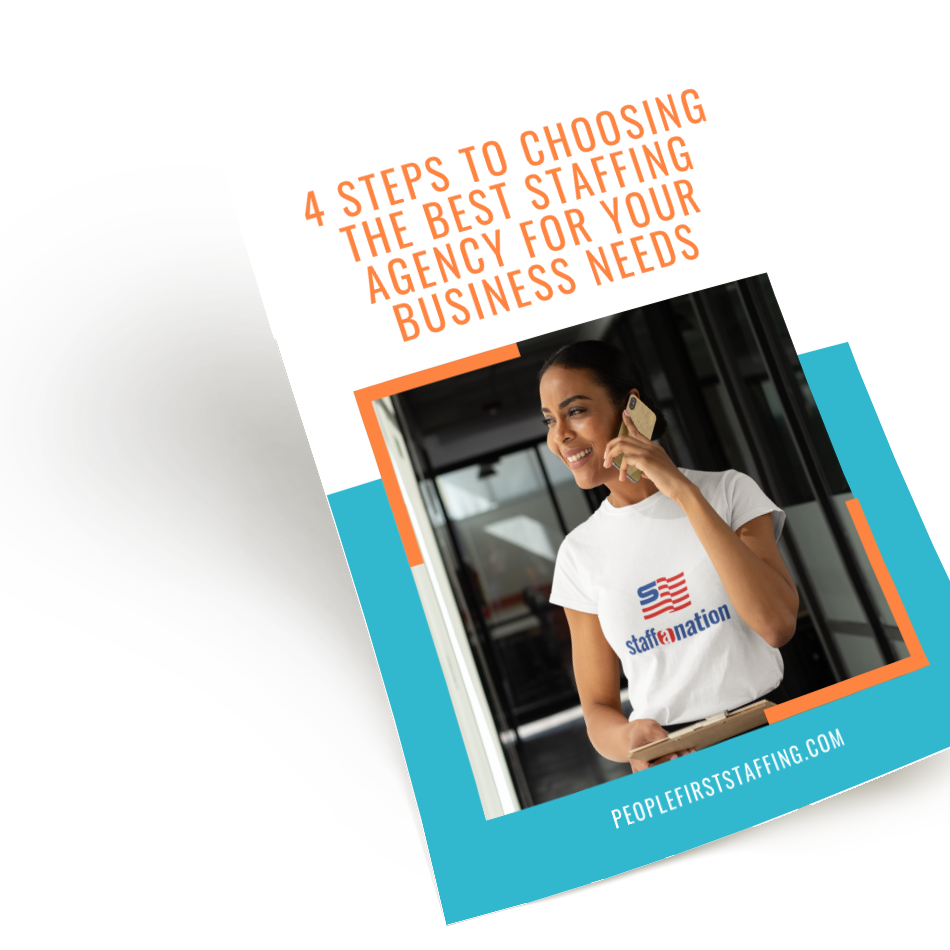
Sharpen Your Axe When It Comes to Recruiting and Retention Processes
Employee turnover is a major issue for businesses and has only become more apparent since the onset of the pandemic. Now is the time to sharpen your axe for your recruiting and retention processes. There’s a saying that “If you want to cut down a tree in five minutes, spend three minutes sharpening your axe.” Essentially, getting ahead of the game, empowering your employees and making them feel appreciated will add to their time at the company. Using this mindset, you can improve your recruiting and retention processes.
What Is Causing Turnover?
We have found that the biggest contributor to this issue is pay. No matter how great the job, hours, company mission, culture, or the employee-manager relationship, if employees don’t feel like they are being properly compensated, then turnover is more likely. For entry-level hourly employees, jobs that pay under $15 an hour will have a tremendous amount of turnover, almost no matter what you do. Don’t take the turnover personally. There is nothing wrong with your company or you as a manager, this comes down to survival. With the recent rise in inflation, employees need to make at least $15 an hour to just survive day to day.
For anything beyond entry-level positions, you need to make sure you are paying at least the market rate, and that market rate has increased drastically over the past 3 years. So take some time and look at what companies like yours are paying in your area. Even if you looked at the market a year ago, it will be worth a look again. Make sure you aren’t hiring new employees at a higher wage than existing employees. That is a recipe for even more turnover. Depending on what inflation does in 2023, you may need to continue to adjust the wages of your existing employees at least every 6 months, especially your lower-paid employees.
How Do We Combat This Issue Aside From Increasing Pay?
First and foremost, being transparent from the beginning, especially about compensation, will carry employees further. As a worker, unclear compensation ranges and rates is not only unhelpful when deciding to start a job, but it’s frustrating. Furthermore, if a worker does start the job and possible opportunities for raises, bonuses aren’t mentioned, they are less likely to picture a future with the company. It’s best to not wait for potential or new hires or to ask about compensation expectations, but to provide it from the beginning.
Next, encouragement and recognition can go a long way. While an employee may start out feeling fairly compensated, if they later feel as though they aren’t being recognized for their hard work or achievements, it can change how they feel about their compensation. So, ensuring you are checking in with your employees and making their hard work feel noticed and appreciated will help lengthen their time with the company.
Sharpen Your Axe With PeopleFirst Staffing
If your recruiting processes aren’t working or you’re having retention problems, reach out to PeopleFirst Staffing for help. We have deep experience in helping companies combat turnover and hire quality candidates from the beginning. Book a meeting with us to discuss your recruiting goals for 2023.
Free Staffing Guide: "How to Choose the Best Staffing Agency for Your Business in 4 Simple Steps”
Our fun and action-oriented guide can help you put the steps in order to hire the best staffing agency for you including:
- Tips for clearly defining your needs
- Ways to narrow down your choices
- The right questions to ask when interviewing agencies
- Understanding staffing agency pricing and fee structures
- Choosing the best firm for you


